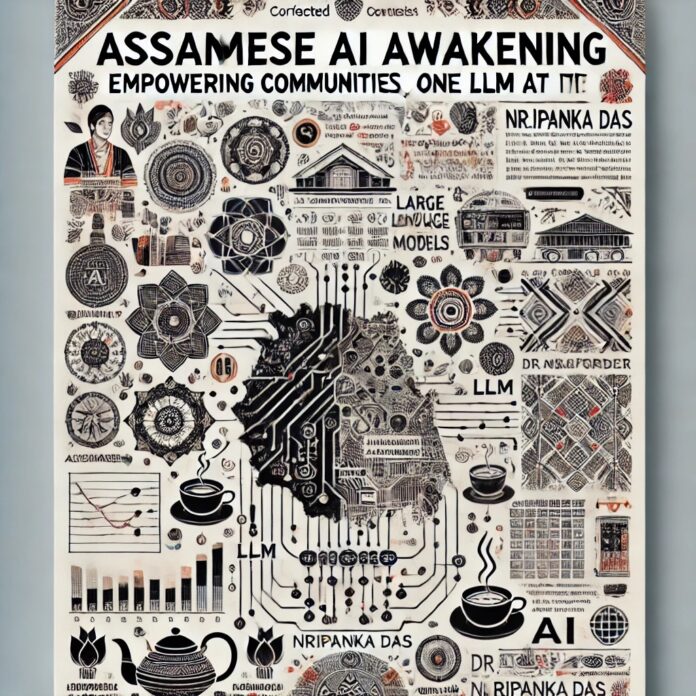Guwahati, Assam – The rise of Large Language Models (LLMs) tailored for Assamese presents a unique opportunity for the state to address deep-rooted social and economic challenges. Dr. Nripanka Das, a Sustainability and Emissions Expert, highlights the transformative potential of these AI technologies in his paper “Assamese AI Awakening: Empowering Communities, One LLM at a Time.”
Dr. Nripanka Das emphasizes the importance of leveraging state-of-the-art AI to foster linguistic inclusion, bridge socio-economic gaps, and enhance participatory governance. By training LLMs on Assamese text, it becomes possible to create tools that can address issues in education, healthcare, and governance, all while preserving and promoting the Assamese language and culture.
The article outlines several key applications of Assamese AI:
- Education: LLMs can be used to create personalized learning experiences, provide language translation services, and make educational resources accessible to a wider audience.
- Healthcare: AI-powered tools can assist in diagnosing diseases, translating medical information, and providing remote healthcare services to underserved communities.
- Governance: LLMs can be used to improve transparency and accountability in government processes, streamline administrative tasks, and enhance citizen engagement.
- Cultural Preservation: AI can help preserve and promote Assamese language and culture by digitizing and analyzing historical texts, creating interactive cultural experiences, and developing AI-powered tools for language learning.
Dr. Nripanka Das argues that Guwahati has the potential to become a strategic hub for AI-driven innovation in the region. By fostering a collaborative ecosystem of researchers, developers, and policymakers, the state can harness the power of AI to drive sustainable and inclusive development.
Editorial Perspective:
The “Assamese AI Awakening” presents a compelling vision for the future of the state. By embracing AI technologies, Assam can not only address pressing social and economic challenges but also preserve and promote its rich cultural heritage. However, it is crucial to ensure that the development and deployment of Assamese AI are guided by ethical principles and prioritize the needs of all communities.
The state government must invest in research and development, build a skilled workforce, and create a supportive regulatory environment to foster the growth of the Assamese AI ecosystem. Collaboration between academia, industry, and government will be essential to ensure that AI is used to benefit society and not exacerbate existing inequalities.
The “Assamese AI Awakening” offers a beacon of hope for the state. By embracing the transformative potential of AI, Assam can build a brighter future for its people and become a model for inclusive technological development in India.
Click here to explore more articles by Dr. Nripanka Das.




